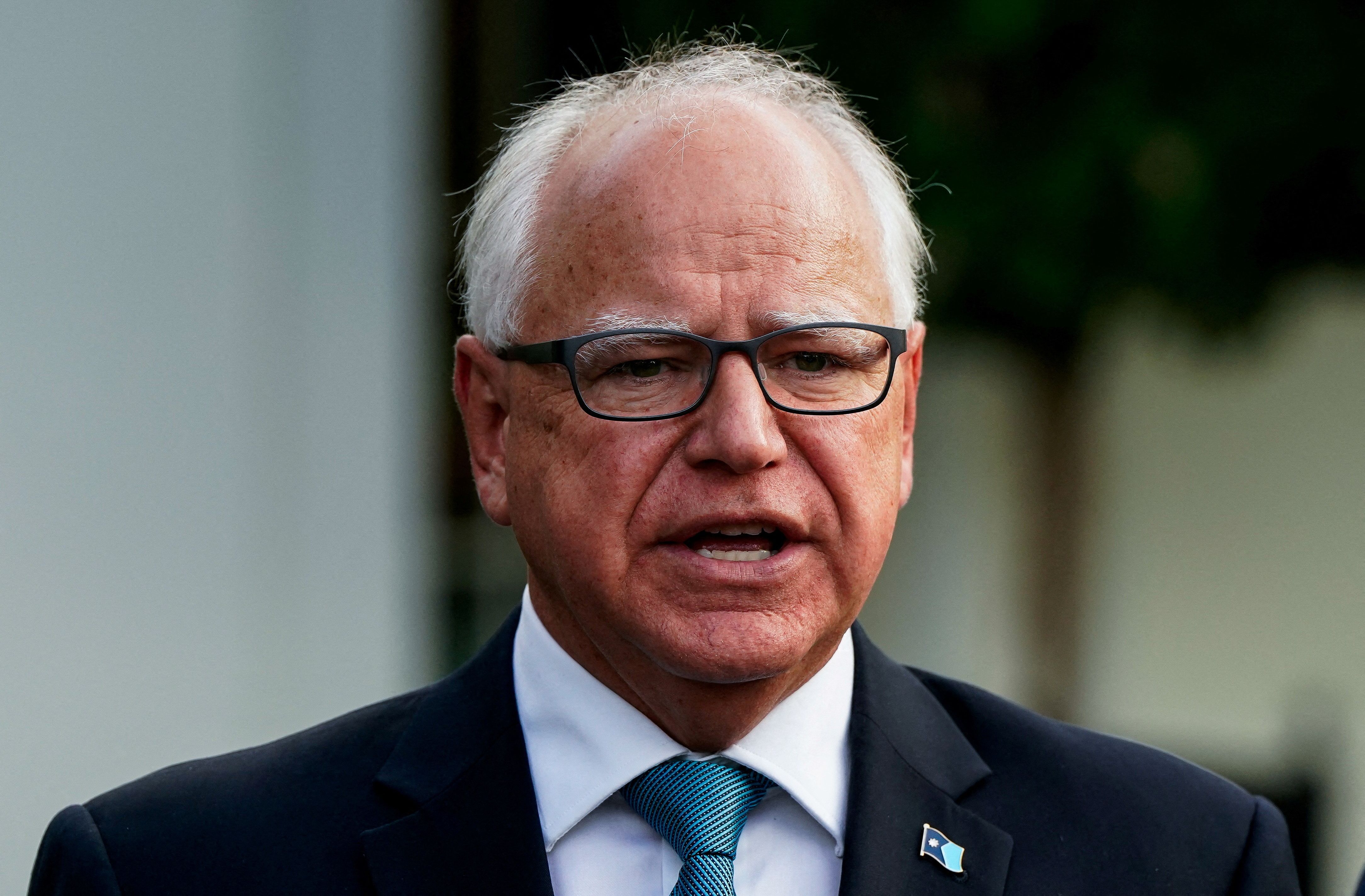Vice President Kamala Harris has selected Minnesota Gov. Tim Walz as her running mate.
Harris’s decision followed a period of intense lobbying on behalf of several candidates, including the other finalist, Pennsylvania Gov. Josh Shapiro. Of the two, Walz was the preferred candidate of many progressives and labor organizations, and he had a record of military and public service in the Army National Guard and Congress before he was elected to his current position. He has served as governor of Minnesota since 2019. Walz is more progressive than Shapiro, but his selection appears to face little resistance from any major constituency within the party.
Spurning the calls of Democratic centrists to pick Shapiro, Harris seems to have heeded warnings from progressives that adding Shapiro to the ticket would fracture party unity because of his attacks on protesters opposed to the war in Gaza and his earlier support for anti-BDS (Boycott, Divestment, and Sanctions) laws. If that is right, it seems that foreign policy-related issues played an indirect role in Walz’s selection in that Shapiro had become too controversial a choice because of his derision for campus protesters.
Walz didn’t have a lot to say about the protests, but he showed much greater respect for antiwar demonstrators when he did: “We've got to bring these people back in and listen to what they're saying. Take them seriously.” He also expressed sympathy with Jewish students and said when they are “telling us they feel unsafe, we need to believe them and I do believe them.”
And Walz appeared to express understanding about the sizable "uncommitted" vote in Minnesota's Democratic primary from those opposing Biden's Gaza policy, saying, “They are asking to be heard and that’s what they should be doing. ...Their message is clear that they think this is an intolerable situation and that we can do more.”
Walz has some foreign policy experience from his time as a House member. He was first elected to Congress in 2006 running on opposition to the Iraq war, and voted for withdrawal of U.S. troops in 2007. Breaking with the Obama administration in 2013, he opposed military action in Syria over the “red line” episode. In 2017, Walz was an early co-sponsor of one of the first House war powers resolutions directing the president to remove U.S. forces from involvement in the Saudi coalition war on Yemen.
On the other hand, Walz initially said he was “cautiously optimistic” about the 2011 intervention in Libya in its first weeks, but added that “I think our engagement needs to be very narrow, it needs to be very defined and it needs to have a clear out time.” Walz seems to be generally skeptical of military intervention, but he has not opposed intervention in every case.
On Israel and Palestine, Walz has taken conventional Democratic positions throughout his career. He has expressed support for a two-state solution and a ceasefire in Gaza (mentioned one time in March), and like most members of Congress, he consistently voted for aid for Israel when he was in the House.
He has also supported U.S. diplomatic initiatives elsewhere in the region. One of his more notable votes in Congress was in support of the Joint Comprehensive Plan of Action (JCPOA) in 2015. He said that the agreement was the “best chance we have had in years to halt the Iranian nuclear program.”
Adding Walz to the ticket gives Harris a seasoned running mate with some real antiwar credentials. How much Walz will influence Harris’s own foreign policy views remains to be seen, but on many of the important foreign policy issues of the last two decades Walz has been on the side of diplomacy rather than war.
















